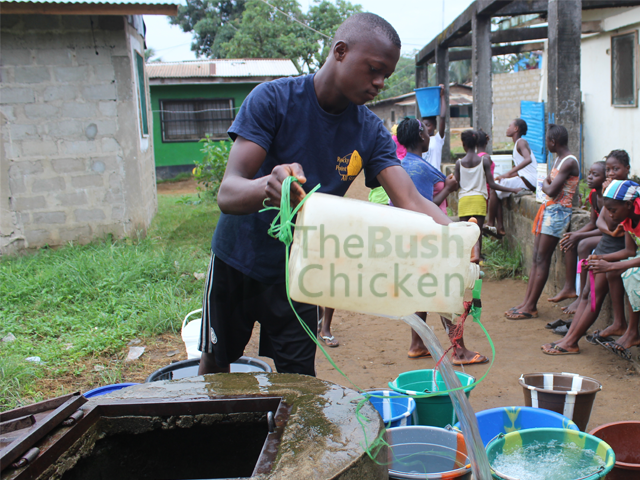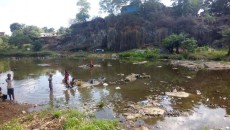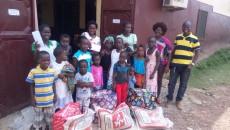KAKATA, Margibi – The international aid agency Save the Children, or SCI, has donated eight water testing kits to the Environmental Health Department of Margibi.
The items were presented last weekend by SCI’s Margibi County Water, Sanitation and Hygiene Team Manager Sarah Aguti-Kuboi.
Aguti-Kuboi said the kits were provided to the Margibi Health Team by SCI and funded by the United States Agency for International Development.
“This move is in an effort to enhance effective water quality testing and analysis,†she noted.
Aguti-Kuboi added that her organization is also building and rehabilitating water facilities at health centers, schools and communities in Margibi.
The SCI WASH Manager said while it is true that the group was providing support to other sectors of the county, it is also important to support the Environmental Health Department in line with its efforts for quality water monitoring.
She said with the water testing equipment, the department will become more effective in conducting water quality monitoring which requires regular sampling and analysis to detect microbial contamination.
The kits, worth at least US$20,000, have been distributed to the Dolo town, Marshall, Worhn, Kakata and Unification City Health Centers.
Aguti-Kuboi challenged the Environmental Health Department to provide proper care for the equipment and ensure that water consumed by the public is safe.
The distribution of the kits followed a four-day training conducted by SCI for at least 20 health workers, hygienists, Water, Sanitation and Hygiene technicians, and water quality monitoring team members on the usage of the equipment.
SCI Margibi County Field Operation Manager Louise Brooks challenged the workshop participants to use the equipment to help prevent the outbreak of waterborne diseases.
Meanwhile, the Director of Community Health Services of the Margibi County Health Team, Joseph Korhene, has lauded SCI for the support. “This gesture is timely and welcomed,†he stated.
Korhene said that the items were especially needed because the county lacked adequate water testing and purifying equipment. Until now, he said the county’s 200,000 plus population had been served by a single machine for water testing.
Featured photo by Joseph Zeogar




